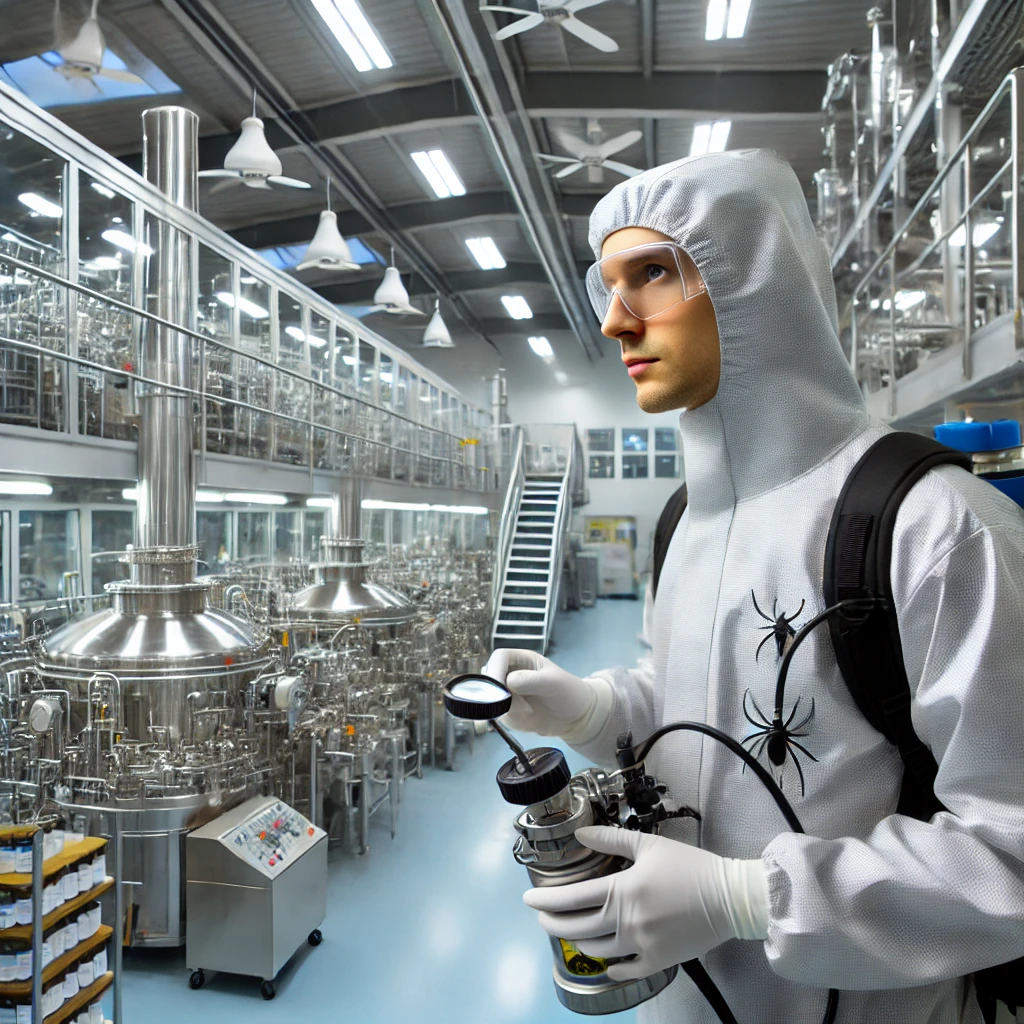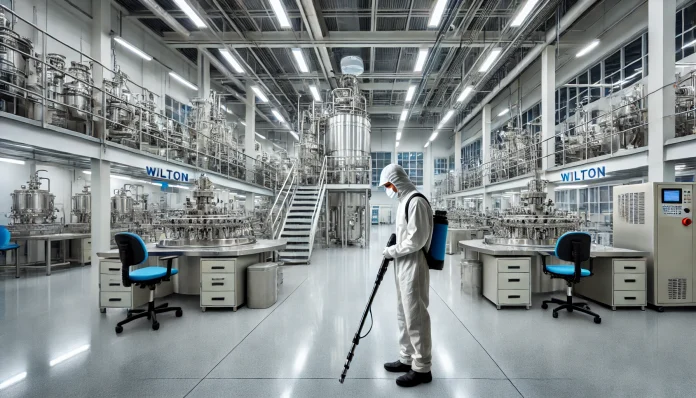Pharmaceutical factories must provide the highest levels of cleanliness and hygiene to ensure product safety and compliance. Any form of infestation, no matter how small, could jeopardize the integrity of the drugs, creating financial losses as well as prosecution. Commercial pest control services for Pharmaceuticals in Wilton with specific solutions designed for pharmaceutical plants in Wilton are needed to forestall contamination, reputations put at stake, and seamless functioning.
Why Pest Control is Necessary in Pharmaceutical Plants
Pharmaceutical manufacturing plants and storage houses are the most vulnerable to pest attacks because of factors such as controlled temperature conditions, packaging materials, and stored materials. The absence of pest control leaves companies operating in this sector at maximum risk, including:
1. Contamination of products
Pests such as rodents, cockroaches, and insects carry dangerous bacteria and pathogens that can infect raw materials and finished products. Contamination by these pests can render medicines unsafe for consumption and lead to costly recalls.
2. Regulatory Non-Compliance
Pharmaceutical enterprises have to meet the stringent regulatory needs of organizations such as the FDA and WHO. A single minor violation on the matter of pests can land them hefty fines, shutdown, or loss of accreditation, halting the production line and damaging the organization’s image.
3. Damage to Reputation and Damage to Brand Trust
Pharmaceutical organizations operate on the principles of credibility and trust. Bug infestation reports can cause negative publicity, taking away customer trust and influencing long-term business relationships.
4. Disruptions to Operations
An infestation will cause shutdowns, delayed production, and increased maintenance expenses, all having significant influences on profitability and effectiveness.
Typical Pests of Pharmaceutical Facilities
Identifying the most common pests in pharmaceutical facilities is the starting point for creating a successful control program.
Rodents (Mice and Rats)
- Chew through packaging material and storage materials.
- Contamination of medicine and raw materials with urine and feces.
- Transfer disease and bacteria that can produce severe health threats.
Cockroaches
- They thrive in warm, dark places close to food and water sources.
- Beach areas are full of bacteria that can infect drug products.
- Multiply at a fast rate, resulting in difficult infestations to deal with.
Stored Product Pests (Beetles and Moths)
- Infest raw materials such as powders and capsules.
- Spread quickly, resulting in extensive material loss.
- Difficult to notice in the early stages, resulting in widescale infestation.

Successful Pest Control Strategies for Pharmaceutical Factories
Pharmaceutical plants in Wilton must adopt an integrated pest management plan to manage and avoid pest infestation.
1. Inspections and Regular Monitoring
Regular inspection is the most important thing to identify pest activity at the initial stage. Hiring a professional pest control service ensures regular monitoring and immediate action when there is evidence of any infestation.
2. Rigidity in Sanitation Procedures
Hygiene has an extremely high priority in pharmaceutical factories. Primary measures are:
- Dumping waste and rubbish to exclude food material.
- Preventive cleaning of processing and storage structures at regular intervals.
- Sealing and storage of raw materials tightly.
3. Structural Exclusion and Maintenance Strategies
Preventing pests from entering the premises is the topmost priority. Strategies are:
- Sealing the cracks, crevices, and openings.
- Adding air curtains and automatic doors.
- Utilization of pest-resistant building material.
4. Integrated Pest Management (IPM) Implementation
IPM is an environmentally friendly and effective method that minimizes chemicals yet maintains pest-free facilities. It encompasses:
- Biological controls, i.e., the introduction of natural enemies of pests.
- Mechanical controls in the form of traps and pheromone monitoring.
- Chemical treatments are applied on a targeted, regulated scale.
5. Professional Pest Control Services
Utilization of a seasoned commercial pest control service ensures utilization of industry standard practices and offers customized measures for preventing and controlling infestation.
FAQs: Commercial Pest Control for Pharmaceuticals in Wilton
1. What are the best pest control practices for pharmaceutical facilities?
The best pest control practices include regular inspections, strict sanitation measures, sealing entry points, and implementing Integrated Pest Management (IPM) strategies.
2. What is the best pest control management in Wilton?
Green Pest Management is the top choice for commercial pest control in Wilton. They specialize in providing tailored solutions for pharmaceutical facilities, ensuring compliance with industry regulations, and maintaining a pest-free environment.
3. Frequency of pest inspection for pharmaceutical plants
Pharmaceutical plants are supposed to do a pest inspection every month at least. Specialized areas have the potential for more frequent visits and preventive services.
4. Most prevalent pests in pharmaceutical factories
Rodents, cockroaches, and stored product insects like beetles and moths are the most prevalent pests threatening pharmaceutical plants.
5. Ways of ensuring adherence to pest control legislation by pharmaceutical companies
To comply, businesses must engage certified pest control suppliers, have comprehensive documentation of all pest control activities, and adhere to FDA and WHO standards of facility cleanliness and pest control.
Final Thoughts
For pharmaceutical companies in Wilton, commercial pest control is not just about eliminating pests—it’s about protecting product integrity, regulatory compliance, and consumer health. A preventive pest management approach, supported by professional pest control services such as Green Pest Management, guarantees a clean and compliant facility with minimized risks and maximized efficiency.




